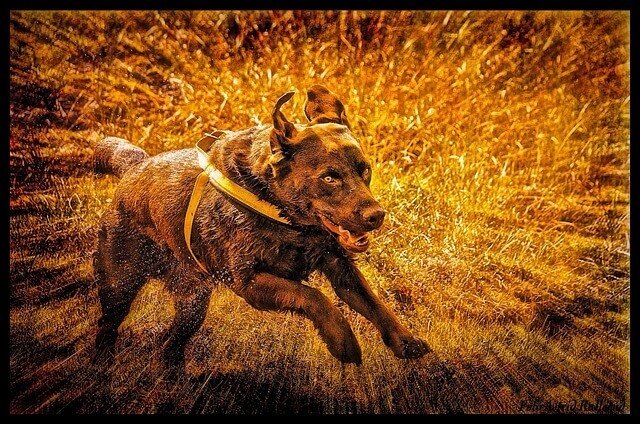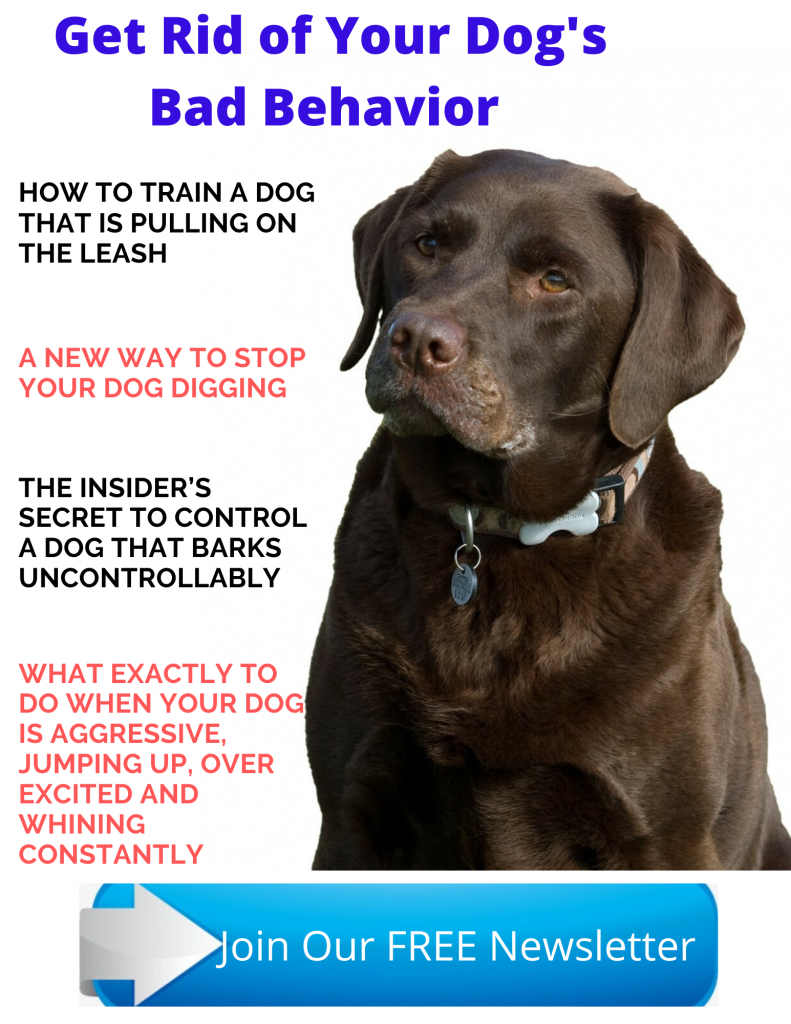Are Labradors aggressive? I don’t know why many people have this question in their minds. Maybe because they have seen or heard about an aggressive Labrador retriever at some point of time in their lives. Coming to the question, Can labradors be aggressive? Labradors are one of the most friendly breeds with a stable temperament. There are less prone to aggression which makes them wonderful family pets.
But is this the case every time? No, it is not. I have heard cases of aggression in labradors. But why did this happen when labs are considered the most friendly breeds? I will provide you with all the information in this article below.
Are Labradors aggressive?
To answer this question directly, Yes some labradors are aggressive. One of my labs had aggressive behaviour in its puppy stage. Whenever i tried to stop him doing something naughty it used to get aggressive. It even had food aggression in the past. It also had toy aggression. My ways to solve its behavioural problem worked and aggressive behaviour has been completely subsided in my lab.
Before understanding ways to stop aggression in labradors, it is important to understand the factors that cause aggression. What are the triggers? What is the Root cause of this behavioural problem?
Causes of aggression in dogs
Before finding out the solution, I want you to understand the factors that are causing aggression in labradors.
1. Fear Aggression in dogs
Fear is a natural instinct in both humans and animals. Have you ever heard of “Flight or Fight condition”? It is nothing but a way of response to fear. During fear your dog either tries to fly away from the situation or tries to fight it. Fighting, in this case, is nothing but aggression. Fear is one of the main reasons dogs why dogs exhibit aggressive behaviour. Fear can be due to many reasons and this can include both, fear of loss and fear of their own safety.
Dogs resort to aggression to save themselves from situations that cause fear in them. Every dog expresses its aggression in different ways as some resort to biting and some dogs just bark and howl.
2. Ill health
Sometimes ill health can cause aggression in your Labrador. Medical conditions such as thyroid disease, brain disease and neurological disorders can cause aggression in labradors. Pain and discomfort during its ill health can cause certain behaviours of aggression such as growling, howling and biting. For example, a lab suffering from arthritis can exhibit aggressive behaviour out of pain. You can also notice aggression in your dog during the post-seizure phase after a seizure. If your non-aggressive lab shows any signs of aggression or if your Labrador is suddenly aggressive it is important to contact the vet as it might be a health-related issue. Check out the possibilities of any health disorder that is causing sudden aggression in your Labrador.
3. Possessive aggression in dogs
You might find your dog growling or getting angry when you go near his food bowl or a toy. Your dog might exhibit possessiveness towards his food, toy, bed or some other object. Any insecurity of losing that object can trigger aggression in your dog. In some cases, your dog might even bite you. Even though dogs are a part of our family today their ancestors fought for food, nests and mates. Hence this tendency of resource guarding still exists in your dog’s genetic material which is the cause of this kind of aggression.
4. Due to frustration
When children get frustrated they yell and throw away things in their hands, and dogs behave in their own ways. Like humans dogs also exhibit signs of aggressiveness when they feel frustrated. There can be many causes for frustration such as stopping him from doing something, loneliness, lack of proper socialization and lack of exercise. My dog barks when it seems frustrated and some dogs can also exhibit other serious forms of aggression such as biting.
Ways to stop Labrador aggression
1. In cases of fear aggression in labradors, it is important to eliminate the root cause for fear. A fearful lab can never be happy and healthy, hence it is important to transform your lab from a fearful one to a fearless one.
Keep your lab away from situations that trigger fear in him. For example, my lab used to bark whenever i used to raise a stick against him to control him. In this case, my dog was scared that i might beat him and he used to become aggressive. Hence i have stopped using a stick to control him and instead started using treats to divert him and change its state of mind.

Desensitize your lab by exposing him slowly to situations that cause fear in him. Remember to do this in a gradual way. Associate the experience with a treat and the positive experience registers in its mind. Trust me, this works.
2. In cases of ill health, it is important to determine if any health condition is causing aggressive behaviour in your lab. Many dogs exhibit aggression out of pain. In cases of ill health, your lab might be suffering from pain and you might be unable to understand him. Hence finally out of pain, it exhibits aggression. You find this case many times in labs suffering from orthopaedic problems which tend to bite people when touched appropriately. Take your lab to the vet to help him heal its condition.

3. Possessive aggression is a common form of aggression you generally observe. It is important to correct this behaviour from the puppy stage itself as it becomes difficult to correct in adult labs. An aggressive labrador puppy if left uncorrected turns into a more aggressive labrador adult. Create a thought in your lab’s mind that good things happen when you go towards him. Feed him food and treats with your own hands into his bowl during mealtimes and your lab will understand that when you go towards its bowl it is an incentive.

Teach him the “leave command” and reward your lab with a treat whenever it follows your command. Command your lab to leave when it has something in its mouth and reward him with a treat for its obedience. You can allow taking his toy back later but here you are training your dog to be obedient and obey your command.
4. Exercise your lab regularly keep him away from frustration. An exercise is a form of physical and mental stimulation that keeps your dog calm. Lack of proper exercise and boredom causes to vent out its energy in various forms of frustrated and destructive behaviour.

5. Proper socialization in early stages of life is very important to avoid various forms of aggressive behaviours in labs. It is essential to make your lab habituate to as many places, as many people and as many dogs as possible during its growth stages of life. Your lab might not be scared of new dogs and new people if it is habituated to many dogs and people during its early stages.

Expose your lab to the outside world so that he can see various people, many dogs and observe their behaviour. It also helps him to learn more things by listening to various sounds such as human voices, vehicular sounds and sounds of other animals. A lab which is well socialized tends to exhibit fewer forms of aggression.
Punishing your Labrador
A punished dog is a more aggressive dog. Have you heard this? Punishment is not at all a successful step in controlling your aggressive labrador. Your lab during aggression is in its heightened state of fear, stress or anger. Hence punishing your labrador adds more stress and anger to him and does not serve the purpose. Many studies indicate increased aggressive behaviour after punishing aggressive dogs.
Your Labrador cannot understand punishments properly. After all, we need to remember that it is an animal. If your lab is growling at something, it is telling us that it is not comfortable. If you punish your lab rather than understanding him, it might resort to aggressive behaviour such as biting in a sudden manner. Be patient and positive in trying to control aggression in your lab rather than opting for punishments which do not serve any purpose.
Are black labradors aggressive?
I find the question funny when someone asks me Are black labs aggressive? But why do some people have this question in their minds? Maybe because of the black colour some black labs might look more aggressive to some people. But actually, there is no proper scientific evidence to establish that the coat colour has a significant impact on the dog’s temperament and aggression.
Does your hair colour if brown or black or red have an impact on your intelligence, attitude and aggression? In the same way, all the labradors irrespective of their coat colour are friendly, loving and perfect family dogs. A black labrador has a stable temperament just like a yellow lab and a chocolate lab.
Aggression can be a problematic behaviour problem and gets worse if left untreated. It is sometimes difficult to diagnose and treat effectively. Hence it is better if you find a behavioural expert who can develop a perfect plan to treat behavioural aggression in your Labrador.
“We would Love to hear from You. Ask your Questions and Share your views in comments”
To Unlock Your Dog’s Hidden Intelligence Click Here
To Train Your Dog to Behave Obediently With Simple Games Click Here


